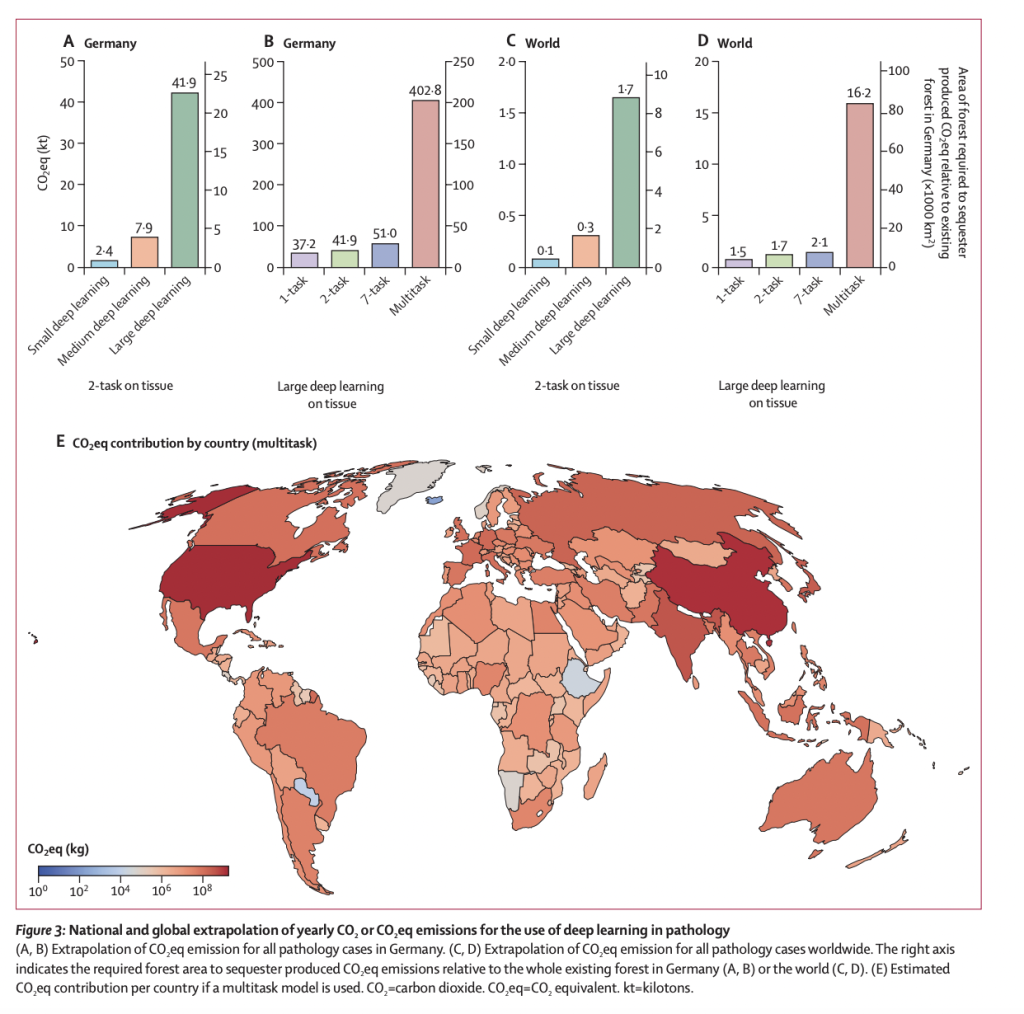

This research delves into a pressing concern within pathology – the significant carbon dioxide equivalent (CO2eq) emissions associated with integrating deep learning. This environmental impact poses a potential obstacle to the widespread adoption of deep learning in medical applications, prompting an urgent need for sustainable practices. As the world increasingly relies on technological advancements in healthcare, understanding and mitigating the environmental consequences become paramount.
A prevailing trend toward increasing complexity characterizes the trajectory of current deep-learning model architectures. A team of researchers from different institutions scrutinize this development and its potential environmental ramifications. However, they put forth a compelling solution by advocating for a strategic shift in model selection. Rather than gravitating toward the latest and largest models, the researchers propose prioritizing computationally less demanding models. This strategic approach reduces energy consumption and introduces the concept of model pruning. This technique surgically removes unnecessary parameters, enhancing computational efficiency while maintaining optimal model performance.
The proposed solution comprises several key strategies to balance technological innovation with environmental responsibility. A pivotal aspect involves reducing input data, particularly in pathology, where large Whole Slide Images (WSIs) are the norm. The researchers recommend automatically excluding areas without tissue, facilitated by dedicated tissue-detection deep-learning models. Additionally, the study underscores the significance of selecting minimally required Regions of Interest (ROIs) within the tissue, further streamlining processes and significantly reducing emissions.
The emphasis on opting for computationally less demanding models holds profound implications for the environmental impact of deep learning. The researchers argue that the assumption that newer and larger models inherently outperform their predecessors may not hold in specific tasks. Their previous findings suggest that simpler deep-learning models can perform comparably, if not better, than more advanced models in various pathology tasks. Notably, a relatively simple deep-learning model with fewer trainable parameters outperformed a deeper model while significantly reducing CO2eq emissions.
Moreover, the study introduces the concept of model pruning as another avenue to enhance sustainability. Model pruning, synonymous with model optimization or compression, involves strategically removing non-essential parameters. The research team’s findings indicate that classification models pruned by up to 40% retained their accuracy while generating 20–30% fewer CO2eq emissions than their non-pruned counterparts. This revelation underscores the importance of strategic model development to ensure environmentally sustainable deep learning.
In conclusion, the research casts light on a critical intersection between technological progress and environmental responsibility in pathology. The proposed methods offer a pragmatic and environmentally conscious approach to addressing the ecological impact of deep learning without compromising efficiency. As the medical community steers through technological advancements, the study serves as a clarion call for a paradigm shift, urging researchers and industries to prioritize sustainability in their quest for innovation. In adopting such practices, the delicate balance between pushing the boundaries of medical technology and mitigating environmental impact becomes achievable, ensuring a more sustainable future for healthcare innovations.
Check out the Paper. All credit for this research goes to the researchers of this project. Also, don’t forget to join our 33k+ ML SubReddit, 41k+ Facebook Community, Discord Channel, and Email Newsletter, where we share the latest AI research news, cool AI projects, and more.
If you like our work, you will love our newsletter..
The post Balancing Innovation and Sustainability: A Pragmatic Approach to Environmental Responsibility in Deep Learning for Pathology appeared first on MarkTechPost.
#AIShorts #Applications #ArtificialIntelligence #DeepLearning #EditorsPick #Staff #TechNews #Technology #Uncategorized [Source: AI Techpark]

